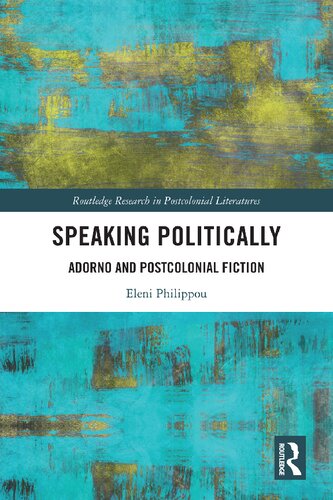

Most ebook files are in PDF format, so you can easily read them using various software such as Foxit Reader or directly on the Google Chrome browser.
Some ebook files are released by publishers in other formats such as .awz, .mobi, .epub, .fb2, etc. You may need to install specific software to read these formats on mobile/PC, such as Calibre.
Please read the tutorial at this link. https://ebooknice.com/page/post?id=faq
We offer FREE conversion to the popular formats you request; however, this may take some time. Therefore, right after payment, please email us, and we will try to provide the service as quickly as possible.
For some exceptional file formats or broken links (if any), please refrain from opening any disputes. Instead, email us first, and we will try to assist within a maximum of 6 hours.
EbookNice Team

Status:
Available0.0
0 reviewsIn this monograph Theodor Adorno’s philosophy engages with postcolonial texts and authors that emerge out of situations of political extremity – apartheid South Africa, war-torn Sri Lanka, Pinochet’s dictatorship, and the Greek military junta. This book is ground-breaking in two key ways: first, it argues that Adorno can speak to texts with which he is not historically associated; and second, it uses Adorno’s theory to unlock the liberatory potential of authors or novels traditionally understood to be "apolitical". While addressing Adorno’s uneven critical response and dissemination in the Anglophone literary world, the book also showcases Adorno’s unique reading of the literary text both in terms of its innate historical content and formal aesthetic attributes. Such a reading refuses to read postcolonial texts exclusively as political documents, a problematic (but changing) tendency within postcolonial studies. In short, the book operates as a two-way conversation asking: "What can Adorno’s concepts give to certain literary texts?" but also reciprocally, "What can those texts give to our conventional understanding of Adorno and his applicability?" This book is an act of rethinking the literary in Adornian terms, and rethinking Adorno through the literary.